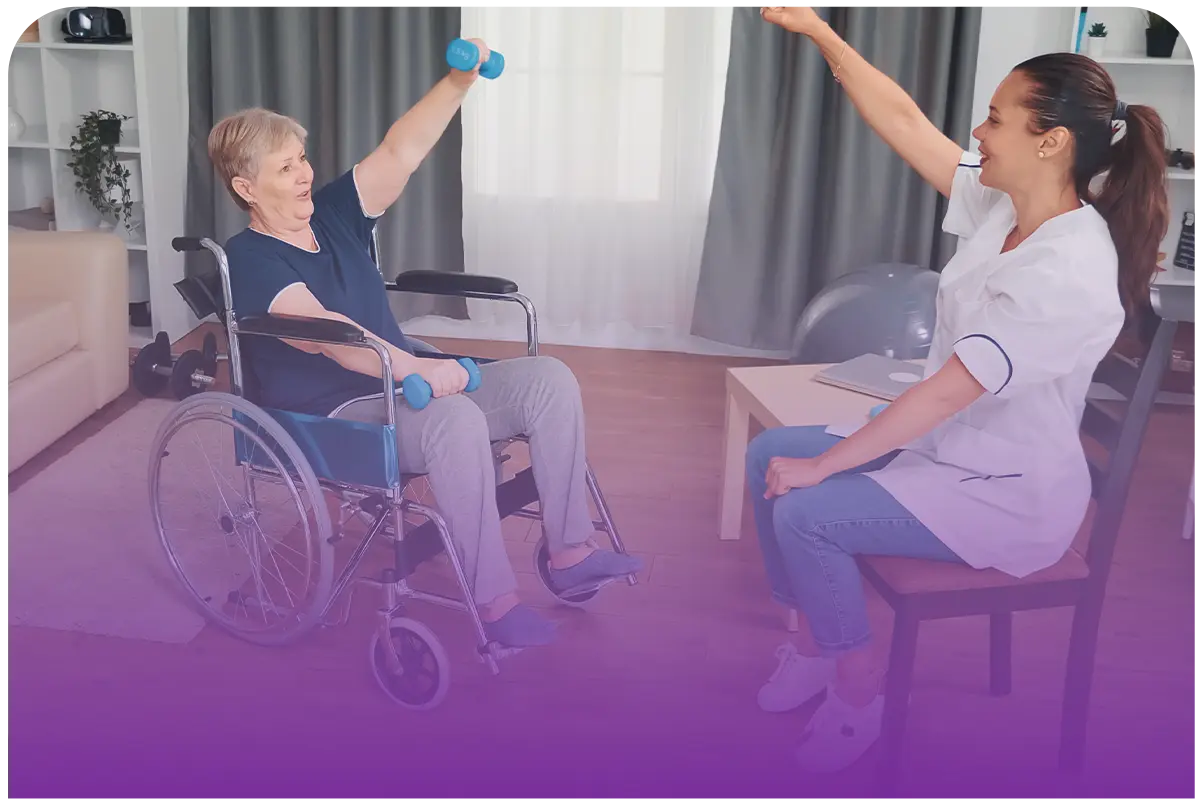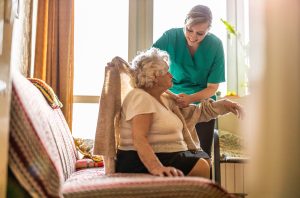Are you looking for a well paid care job with Alpha Care? Click here

In today’s fast-paced world, the importance of physical exercise cannot be overstated, especially for the geriatric population. As we age, our bodies undergo numerous changes, both physiological and psychological, that can significantly impact our overall health and well-being. Engaging in regular physical activity is not just beneficial; it is imperative for maintaining a high quality of life in our later years. For this we will discuss things about elderly home care in this blog.
The Physiology of Aging
Before going deeper into the specifics of how physical exercise affects geriatric health, it’s crucial to understand the physiological changes that occur as we age. Aging is associated with a decline in muscle mass, bone density, cardiovascular function, and overall mobility. These changes can lead to an increased risk of chronic diseases such as osteoporosis, heart disease, diabetes, and arthritis. Additionally, cognitive decline and mood disorders become more prevalent among the elderly population.
Elderly Home Care
Home care, as defined by the WHO, encompasses a range of healthcare and support services delivered within residences, serving as a temporary alternative to long-term care facilities. These services aim to forestall or prevent hospitalization, particularly in nursing homes. The scope of home care services is broad, spanning non-medical assistance, healthcare provisions, and supportive aid. Visit this article for more.
Non-medical services encompass essential tasks such as personal care, which involves aiding older individuals with activities of daily living (ADL) and instrumental activities of daily living (IADL). Additionally, home care includes housekeeping duties, nutrition services such as meal delivery and meal preparation, educational programs, transportation assistance, home modifications, and maintenance services.
Health Services Within Home
Health services within home care for elderly home care involve medical care delivery, encompassing assessments, therapeutic care planning, provision of medical equipment, acute care, and laboratory services.
Nursing care is a vital component, including tasks like scheduling medical appointments, case management, medication administration, wound care, dementia patient care, skilled nursing, oxygen therapy, dialysis, tube feeding, and parenteral feeding. At Alpha Care offers custom made Personal Care services as well.
Rehabilitation services, like physiotherapy and occupational therapy, along with the provision of rehabilitation equipment, are also included. Psychology and consultation services, palliative care, and end-of-life care are part of the comprehensive health services offered.
Social support services provided in home care focus on enhancing social connections and emotional well-being. These services may include family support, companionship through friendly visits, recreational programs, facilitation of social relationships, assistance in locating group housing accommodations, job placement assistance, and spiritual support.
Elderly Home Care Services
In the realm of elderly home care services, individuals seek private elderly home care that offers personalized assistance made to their specific needs. Concerns about elderly home care costs and determining how much elderly home care services would cost are common among families. Thus, finding reputable elderly home care providers becomes paramount. Families often strive to identify the best elderly home care services that offer high-quality care and support for their loved ones.
In the crux, home care services for the elderly encompass a wide collection of non-medical, healthcare, and social support services delivered within the comfort of one’s residence. From personal care and medical assistance to emotional support and companionship, elderly home care services aim to promote independence, enhance quality of life, and ensure the well-being of older adults. For best Elderly Care services do visit our website.
The Benefits of Physical Exercise for Seniors
Physical exercise offers a multitude of benefits for seniors, both physically and mentally. Here are some key advantages:
1. Improved Cardiovascular Health
Regular exercise helps strengthen the heart muscle, improve circulation, and lower blood pressure. This reduces the risk of heart disease and stroke, leading to a longer and healthier life.
2. Enhanced Muscular Strength and Flexibility
Engaging in resistance training and flexibility exercises can help seniors maintain muscle mass, prevent age-related muscle loss (sarcopenia), and improve joint flexibility, reducing the risk of falls and fractures.
3. Better Cognitive Function
Studies have shown that physical activity is closely linked to cognitive function in older adults. Exercise stimulates the release of neurotransmitters and growth factors in the brain, promoting neuroplasticity and improving memory, attention, and problem-solving skills.
4. Mood Regulation
Exercise is a natural mood enhancer, releasing endorphins that help reduce stress, anxiety, and depression. Seniors who engage in regular physical activity often report better overall mood and mental well-being.
Implementing an Exercise Routine for Seniors
Now that we understand the importance of physical exercise for geriatric health, let’s discuss how to implement an effective exercise routine for seniors:
1. Consultation with Healthcare Professionals
Before starting any exercise program, seniors should consult with their healthcare providers to assess their current health status and determine any potential risks or limitations. Visit our website at Alpha Care for more details.
2. Choosing the Right Activities
Seniors should focus on low-impact activities that are gentle on the joints, such as walking, swimming, cycling, yoga, and tai chi. Incorporating a variety of exercises that target different muscle groups is essential for overall fitness and injury prevention.
3. Gradual Progression
Seniors must start slowly and gradually increase the intensity and duration of their workouts over time. This allows the body to adapt and minimise the risk of overexertion or injury.
4. Consistency is Key
Consistency is key when it comes to reaping the benefits of exercise. Seniors should aim for at least 150 minutes of moderate-intensity aerobic activity per week, along with muscle-strengthening activities on two or more days per week.
Conclusion
In conclusion, physical exercise plays a vital role in promoting health and well-being among the geriatric population. By incorporating regular exercise into their daily routine, seniors can improve cardiovascular health, maintain muscle strength and flexibility, enhance cognitive function, and boost mood and mental well-being. It’s never too late to start reaping the benefits of exercise, and with the right guidance and motivation, seniors can enjoy a higher quality of life well into their golden years. Contact Us today to hire the best career in the UK for your elderly loved ones.













 326 Winchester Rd Southampton SO16 6TW Hampshire UK
326 Winchester Rd Southampton SO16 6TW Hampshire UK




